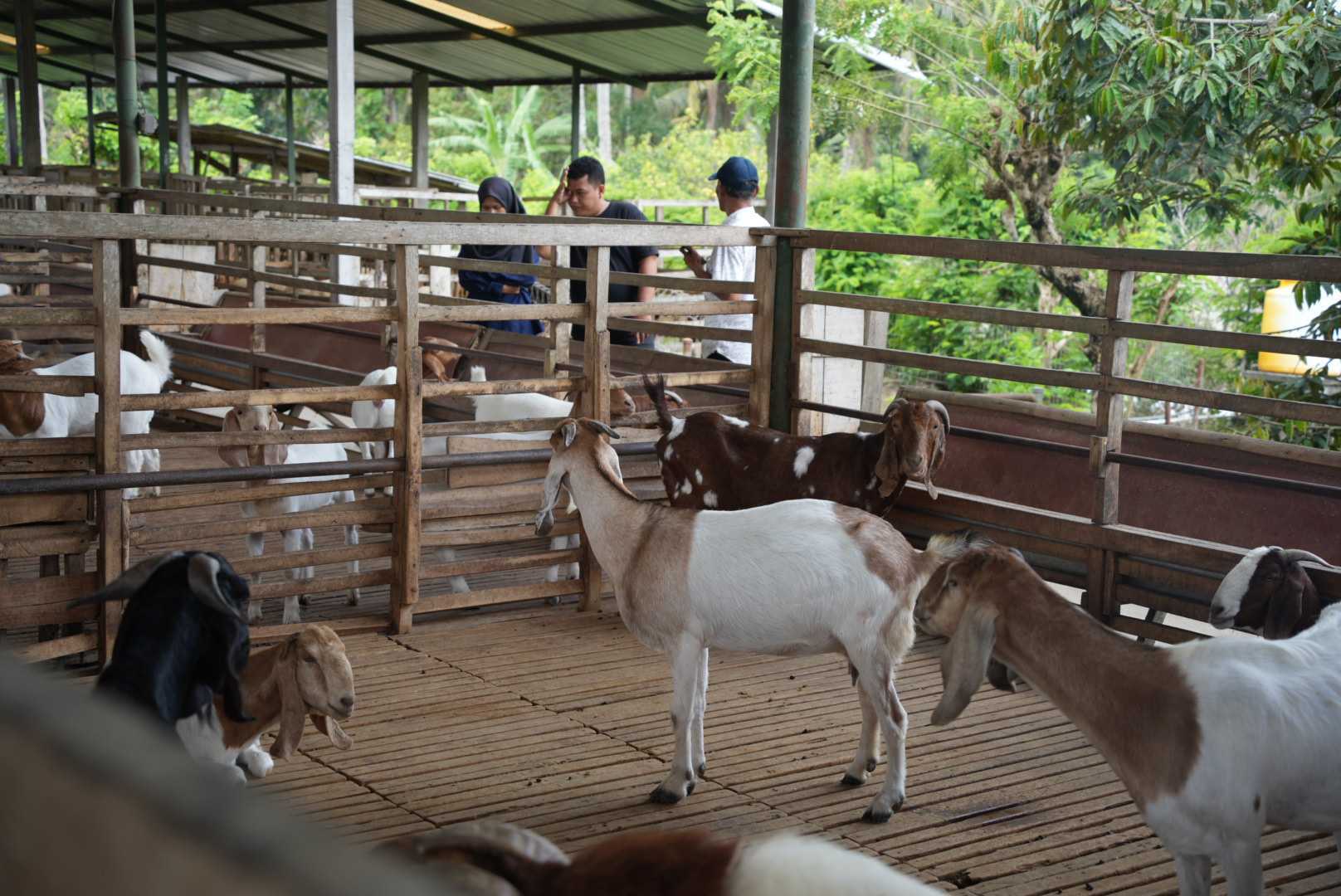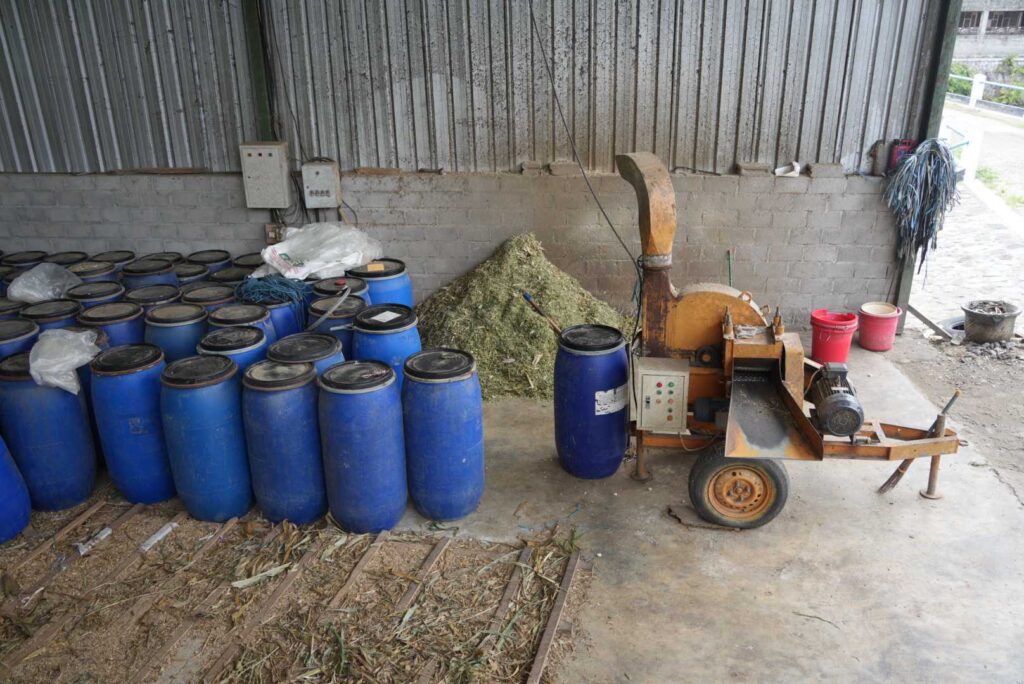
2023.11.17|
The image of Social Implementation of Livestock Production Business with Upcycled Feed in Indonesia
On November 15, 2023, we visited goat farmers in Indonesia with the innovative Indonesian start-up company ALBITEC. The main objective of the visit was to explore the potential of new feeds utilizing upcycling of existing biomass. In particular, the ultimate goal is to use microalgae as feed. This initiative is expected to be an important step toward achieving sustainable agriculture by maximizing the use of local agricultural resources. Through on-the-ground discussions, we gained a deep understanding of the actual needs and challenges of farmers and sought practical strategies to address these issues.

Adaptation to Local Conditions
- Aquaculture Diet Formulation: Indonesia has made progress in customizing feed formulations for aquatic diets, emphasizing ingredient replacement, cost reduction, and optimizing growth and feed usage. A feed formulation laboratory at a seafarming site in Indonesia is focused on developing diet programs with these goals in mind.
- Ingredient Sourcing: Ingredients for diet formulation, such as rice bran, soybean meal, and grain products, are sourced locally. Attention is given to the nature of ingredients like fresh fish and seaweed hydrocolloid binders, crucial for the dietary needs of aquatic species.
Community Engagement
- AgriTech Ecosystem: Indonesia's agricultural sector is being transformed by digital technologies, creating a dynamic AgriTech ecosystem. This includes farmers' advisory services, peer-to-peer lending, traceability, digital marketplaces, and mechanization. Increased investment and modernization of the food systems are key to improving food production and farmer income.
- Digital Agriculture Ecosystem: To operationalize the transformation, Indonesia is developing a digital agriculture ecosystem. This includes digital infrastructure (data, hardware, software), advisory services, market linkages, financial access, supply chain management, and macro agri-intelligence.
Government and NGO Partnerships
- PISAgro Initiative: The Partnership for Indonesia’s Sustainable Agriculture (PISAgro) is a public-private partnership aimed at addressing agricultural challenges sustainably and improving the livelihoods of smallholder farmers. With over 85 partners including companies, NGOs, donors, and other institutions, PISAgro works across 13 Working Groups.
Economic Benefits for Businesses
- Value Chain Development: The Indonesian government, through projects like the ICARE initiative, aims to develop sustainable and inclusive agricultural value chains. This involves enhancing production capacity, diversification, logistics, modernization, and export promotion. The focus is also on transitioning producer companies into modern businesses.
- Inclusive Economic Growth: The agricultural sector, accounting for a significant portion of Indonesia's workforce and GDP, is pivotal for food security and agribusiness. The focus is on smallholder farmers, who are crucial for meeting the rising demand for food and agro-industrial products.
Potential Environmental Impact Reduction
- Climate-Smart Agriculture: The ICARE project aims to develop viable value chain models that adapt to climate change and reduce the carbon footprint. This involves promoting climate-smart agriculture and strengthening institutional capacities in the public and private sectors.
- Sustainable Development Goals: The project aligns with Indonesia's national policy frameworks, contributing to climate change mitigation, adaptation, and long-term low-carbon strategies. It also addresses the World Bank Group’s goals of alleviating poverty and boosting shared prosperity.
Challenges and Solutions for Implementation
- Nutritional Adequacy: The challenge lies in ensuring wood-based feed meets the nutritional needs of livestock like goats. Ongoing research and development are necessary to create a balanced feed supplemented with necessary minerals and vitamins.
- Acceptance by Livestock: Gradual introduction of the new feed, mixed with traditional feed, is essential to acclimate livestock to the new diet.
- Local Production Capabilities: Investing in local processing plants and training workers is vital for developing facilities capable of processing wood into feed.
